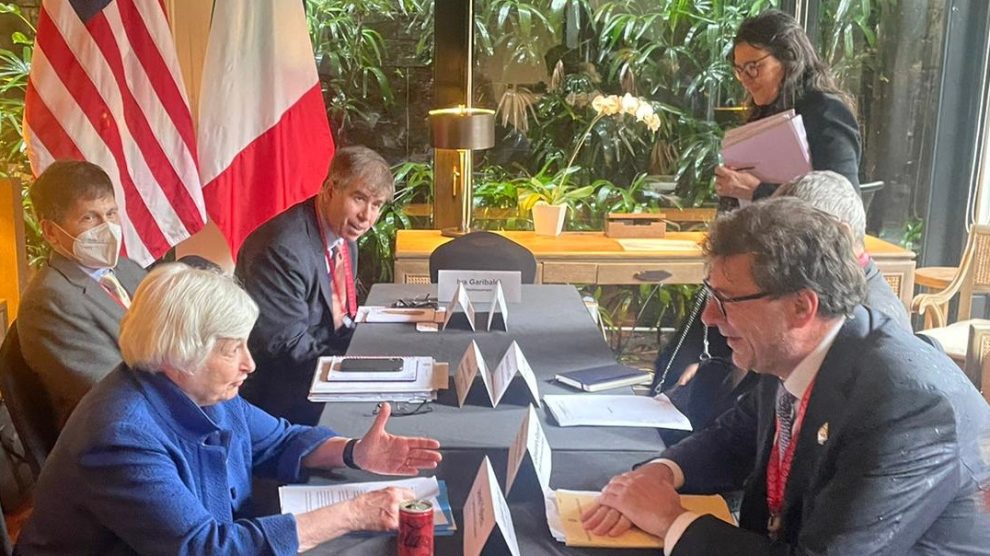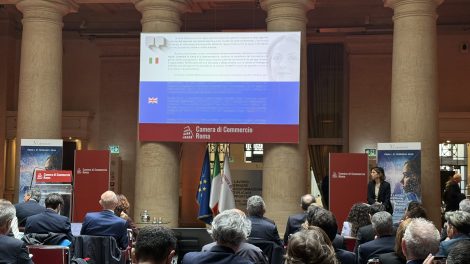Achieving technological autonomy across the value chain is “fundamental”. This was said by Giancarlo Giorgetti, Italian Economic Minister, during his conversation with Janet Yellen, US Treasury Secretary, on the sidelines of the G20 Summit in Bali, Indonesia.
- According to a note from the Italian side, it was a “long and cordial” meeting where the two spoke of the most significant economic emergencies: inflation, energy prices, and international taxation reform.
Ukraine and energy. Minister Giorgetti stressed that Italy would continue to support Ukraine and highlighted the strategic importance of maintaining acceptable energy prices in Italy, for businesses (Italy is the EU’s second-largest manufacturer, as he recalled) and for households.
- Both agreed, among other things, on the centrality of technological development and research for their respective countries.
The elephant in the room: China, when it comes to tech sovereignty. And Mr Giorgetti’s words match those spoken yesterday by Adolfo Urso, Minister of Business and Made in Italy, at the presentation of the 21st Altagamma Observatory.
- “In an era of de-globalisation,” he said, “we must think about reshoring companies.” That is, bringing production back to Italy or at least bringing it closer to friendly countries (friend-shoring).
- That’s because production must be less global to become less dependent on third countries.
- By leveraging economic supremacy, China is trying to “subjugate our democracies; we must be aware of that,” he added.
The hardline on China. The words of Mr Giorgetti, former Minister of Economic Development under Mario Draghi’s government, and Mr Urso, former head of Parliament’s Intel Committee, are a clear signal sent from the Rome executive to Beijing – just a few hours before the scheduled meeting between Prime Minister Giorgia Meloni and Xi Jinping, the Chinese leader, on the sidelines of the Indonesian summit.
- Just before the September elections, PM Meloni had said she wouldn’t renew the Belt and Road Memorandum of Understanding, signed between Italy and China in 2019 and expiring in 2024 – a treaty she called a “big mistake.”
And China’s reaction. Beijing, too, seems to have changed style and content in matters of public communication with Italy, as a recent interview by Zheng Xuan, acting chargé d’affaires at the Chinese embassy in Rome, demonstrated.
- Talk of politics and friendship have given way to matters like the green and digital transitions, infrastructure, 5G and investments.
- That’s because the change of tack reinforced by Mario Draghi’s government is in full swing. In the words of US Deputy Secretary of State Wendy Sherman, Italy “understands very well how the People’s Republic of China operates in the world.”





